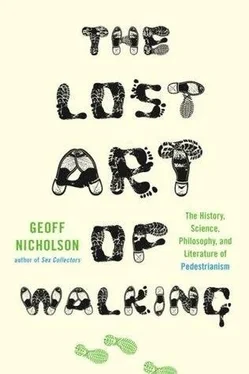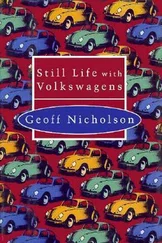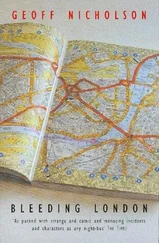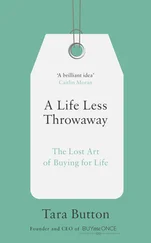Steve supported this theory. His parents, who had stayed much longer than mine in the estates, had finally tired of the crime, the graffiti, the drugs, and the rumors of drugs, and had fled to live in a trailer park twenty miles away.
On the ground there wasn’t much evidence to support the ‘left behind’ theory. Longley looked very much as I remembered it. Apart from a few style changes, some newfangled doors and double-glazed windows, and some late-model cars, a time traveler from the 1960 swouldn’t have seen anything to surprise him.
We walked past my parents’ old house, the center of a block of three, very traditional, red brick and slate, with a door right in the middle, windows arranged symmetrically on either side. It seemed familiar, far more than I expected it to, given that I hadn’t been there for over thirty years, and yet there was no great pang of nostalgia. I well remembered what it had felt like to live here, to have walked around this area, to have been bored and restless and eager to get out. Neither I nor the place had changed very much.
And on the surface, that applied to the whole neighborhood. Steve and I walked and looked and noted what had changed but also how much had stayed the same. As in Hillsborough, the shops were a good indicator. What had been an old-fashioned grocery store was now something called Streetwise Youth Central. There was a hair salon, and although it was offering Power Tan Sunbeds, which was surely a recent development, it looked much like the hair salon my mother had gone to. And there was also a thoroughly old-fashioned shop called Sew Craft, Cross-Stitch and Wool, which seemed to be thriving.
From time to time we did see tough-looking young men with tough-looking young dogs, the international signifier of the demand for ‘respect’. First we saw three spindly lads in baseball caps walking or being walked by some sort of customized, slavering bull terrier. Then there was a family group: young dad and mom, two small kids, and an Akita, the Japanese fighting dog, as big as a pony. Then we saw a pair of squat, pierced, tattooed heavies, their style somewhere between heavy-metal fans and apocalypse survivors, with cans of beer and a dog on a leash that if I didn’t know better I would have thought was a dingo. How we respected them. Perhaps if we’d walked farther we’d have seen dog lovers with their jackals, their hyenas, their timber wolves. Our respect would have known no limits.
Steve and I reckoned these dogs were far more vicious than the ones that had menaced us when we were kids, and that their owners were no doubt much more vicious than the bullies we’d encountered. It might almost have made us nostalgic. Then we found ourselves talking about child abuse. We said, not exactly for the first time, that when we were kids, the place was quite the hotbed of grown men doing, or attempting to do, dodgy things to boys. Any lad walking on his own was fair game. Our school friend Brian had had his leg stroked by a man in the local movie theater. We all knew that was wrong, even if we didn’t quite know why, but that still didn’t stop us finding it hilarious.
Walking home from the library, a regular half-hour walk in each direction, I’d once met a man who claimed to be a doctor. He had a black bag and a stethoscope visible in his pocket, and he just may really have been a doctor, but he stopped me and talked to me in a way that now makes me suspicious. The man asked me what school I went to and what my favorite subjects were. He claimed to know a couple of my teachers, and possibly he did. What was so seductive was the way he talked to me, as though I were an adult, and that was incredibly flattering, so much so that I mentioned it rather proudly to my father when I got home. I could immediately see I’d told him something that would have been better left untold. He told me to be careful walking on my own, but I had no idea what there was to be careful about.
The real prize, however, went to our friend Rob, who told me about something odd that had happened to him in Longley Park. He’d met a man who invited him into the public lavatory and taught him how to masturbate. Rob hadn’t been a complete novice but was glad of some extra instruction, and even passed on a few tips to me, but he still felt there was something puzzling about the episode, and I shared his puzzlement. Neither of us saw anything frightening or dangerous or morally wrong in what had happened. We did think it was a bit weird, but then so many things that adults did seemed a bit weird. I haven’t seen Rob in decades, and from time to time over the years I’ve often wondered if he continued to shrug off the episode with such equanimity.
My walk with Steve took us into Longley Park, and we saw that the public toilet where Rob was violated and educated had been demolished and removed, and yet the footprint of the building was still absolutely clear. The grass surrounding it was green and healthy, but the flat rectangle of earth where the toilet had once stood was a damp, muddy, grassless rectangle. We were careful not to see anything too symbolic in this.
♦
The day after Steve and I explored Longley I took a walk by myself, a necessary walk but not one that I was looking forward to. I’d decided to walk up what in my mind had become ‘the hill that killed my mother’.
My mother had long had a heart condition, a damaged valve caused by a childhood bout of rheumatic fever. By the time I was a teenager she was suffering from shortness of breath and having trouble walking far, and by the time I was in college she could barely walk up a flight of stairs. Then she had an operation to replace the defective valve and was fine for the next decade, after which she was increasingly less fine until she had another operation to replace the replacement, and then she was fine again, as far as we knew.
She’d been out to Sunday lunch with my uncle. It was a regular thing. He was the one with the car and he picked her up and drove her to and from their favorite restaurant on the other side of the city. But this time, while they were having lunch, they and the whole of Sheffield were caught in a sudden, fierce, unexpected blizzard. The roads weren’t gritted or salted and there was no way my uncle could drive her back to her house: his car simply wouldn’t make it up the hills — that old problem. He took her as far as he could, which was not really very far, just to the bottom of a hill called Gleadless Road, a horribly steep road at the best of times, one that demands you drive up it in second gear, a road that buses and trucks struggle to negotiate even in good weather. It wasn’t a road that anybody, least of all my mother, would ever choose to walk up, and definitely not in the middle of a blizzard, but in this situation she thought she had no option.
She made it to the top — I was never quite sure how. When she told me about it later I was horrified, and we discussed what else she might have done: knocked on doors until she found someone who’d offer her shelter, but that still wouldn’t have got her home; called the police, but it didn’t seem likely they’d have been willing to provide a chauffeur service for her — called an ambulance and told them about her weak heart — well, maybe they’d have helped. But she was far too proud to do any of these things. She didn’t want to present herself as a cripple. There was also, surely, the option that my uncle might have driven her to his house, but this never crossed her, or my uncle’s, mind. In the end we agreed that anyone would probably have done the same and walked home, but then ‘anyone’ wasn’t necessarily a sixty-nine-year-old lady with a heart condition.
‘It damn near killed me’, she said.
Well, it did and it didn’t. It didn’t destroy her but it definitely didn’t make her stronger. Over the next few months it became clear, and clearer still given subsequent events, that this enforced hill climb had done some damage to my mother’s heart. The valve appeared to be leaking, and there wasn’t enough blood or oxygen flowing through my mother’s veins. She couldn’t get around as well as she once had: walking and breathing were becoming a problem again. This in itself wasn’t a great surprise. It would have happened anyway, sooner or later. We knew the valves were only good for a decade or so, and although something obviously needed to be done, there didn’t seem any great urgency. My mother wasn’t going to insist on surgery unless and until it was strictly necessary.
Читать дальше












